It’s the dawning and the sound of a new age, whether the world is ready for it our not. Artists are coming in droves, not conforming to industry standards but moving further away, creating things that are quite unique. Beginning the year with his debut full-length Growing Up Gay, and ending it with Conde Digital (Fake Four Inc.), Chris Conde is stirring an industry pot in more ways than one and Hip-Hop may never be the same. But that’s a good thing.
Texas native Conde doesn’t hide who he is and he doesn’t plan on following conventional methods to get what he wants or do what he loves. He’s young, gifted, and gay and far removed from caring about what anyone thinks about him. He’s willing to let his art do the talking for him, which speaks volumes. I had the opportunity to speak with Chris Conde at length regarding his new release as well as his debut.
Chris, Of yourself, you have written some things about being a queer rapper and the LGBTQ because of “groups that don’t recognize people as fully human.” I see that, I get it, and I can respect it. The one issue that I have, unrelated to your release, and I’ll cite this as an example, I’m inundated with press releases, publicity folk that submits music with tag lines like “this LGBTQ artist”, “Gay” or” “Lesbian.” For me, if you’re dope, you’re dope. It kind of loses its power for so many people because I think some are using it as a crutch. Like the Black Rock Coalition back in the 90s for example. It wasn’t difficult to see that people playing rock were people of color. Again, for me, if you were dope that’s all that mattered.
Thanks for getting hitting me up, and I appreciate your comments which really means a lot. As far as talking about being a queer artist, or LGBTQ identifying artist, I totally get it. It can seem cliché. But for me, growing up, I didn’t have queer heroes. There were no openly gay rappers, queer skateboarders, or openly gay dudes in metal and hardcore bands. Visibility isn’t just for the zeitgeist, it’s for the next generation of LGBTQ people who are figuring out how to navigate a world that wasn’t designed with them in mind. I also announce my queerness loudly because I know I am a gifted artist and am talented at what I do. I say this with the kind of confidence that an architect would have told a family that they’re going to build this family a beautiful, structurally sound home. It’s facts. I’ve worked on my craft for a long time and I want to let people know that queer people exist in all facets, genres, artist mediums, professions, groups, and cultures and we’re just as dope and talented as straight/cisgender counterparts.
Ghettoblaster: So speaking of dope, this actually is my introduction to your music. I see that you had Moodie Black produce but even without those beats, your delivery, your cadence, your inflection, that’s what drew me in. Altogether though, my initial reaction; I got chills. That doesn’t happen often. Want to talk about the recording process and how that collaboration came into play?
Chris Conde: As far as this collaboration with Moodie Black. I met Chris Martinez, aka KDeath, a few years back and actually booked her for my annual LGBTQ showcase Queers & Beers which features LGBTQ artists and performers of all genres. Anyway, she was just actually selling beat packages online and in the process of me purchasing one of the packages, Ceschi found out and offered to release the project through Freecember. This was all over a year, even before I had released my debut album Growing up Gay, which dropped New Years Day 2019. Anyway, I wrote the EP over the course of about a week. Chris offered to help arrange the tracks to my liking but I just ended up doing it myself. I ended up recording with my friend and fellow rapper D.R.O. who actually tracked my vocals for Growing up Gay. We knocked everything out in just a few hours. My friend Steven Valadez had purchased some tracks from Chris too and he actually gave me one of them which would end up being the title track for the EP.
Ghettoblaster: Queers & Beers is an amazing name. I haven’t heard since Revolting Cocks’ Beers, Steers, and Queers. Have you had much opposition to your showcases or live performances?
Chris Conde: I probably subconsciously named it “Queers & Beers” after that album actually! I grew up on industrial. I actually gave myself a stick and poke NIN tattoo when I was 14. But I loved Skinny Puppy, KMFDM, My Life With The Thrill Kill Kult, and of course Ministry. Al Jourgensen and I actually share the same birthday too so maybe there’s something to that too. I always loved the idea of rapping over unconventional Hip-Hop beats.
When I was in a hardcore band there were folks that didn’t take a liking to me being so open about my queerness and actually tried to physically hurt me. Today it just happens in the form of some bookers and promoters not wanting to put me on a bill because they’re afraid I’ll scare off an audience (even though when Doomtree affiliated folks like Shredders and Sims, or Sadistik or Sage Francis or bigger indie rappers have me open for them all the time). I’ve heard this first hand also about a friend of mine Milli Mars being questioned why they would work with an artist like me (me being queer). He responded to that person basically saying he works with anyone who can spit bars. I mean, sure, I have a few lines where I talk about sucking dick but it’s rapped through a technical verse, which is basically me saying, “Yeah I’m gay, but I can rap as good as any straight dude up on this stage.”
“Year of the Queer” for me is definitely like the queer anthem. Like, “we in here and we’ll start a fucking mosh pit while burning this bitch down,” kinda thing.
Ghettoblaster: Although you don’t stray away from letting people know who you are on the Conde Digital EP, after listening to this release everyone’s going to know, “Ok, this cat definitely has bars.” You open the release with “Year of the Queer” which features KDeath (Moodie Black). This track right here, it sends a message culturally but the delivery also gives a we’re-not-fucking-going-anywhere vibe while letting listeners know you can bring a hard-edge into your music as well.
Chris Conde: I feel like a lot of my listeners, especially folks who have been following me for a few years, definitely, know I have a rougher edge with my music. My proper debut EP, which dropped in 2015, features me rapping over harsh noise and power electronics produced by my friend Angel Marcloid who creates a lot of her music underneath the moniker Fire-Toolz. We’ve actually been collaborating and making what I guess people are calling “noise rap” since like 2009-2010. I don’t really care what genre people call me. I say post-rap, noise rap, rap-gaze, industrial rap, punk rap, whatever, but it honestly doesn’t really matter to me what people call me as long as they know that I’m an artist and hip-hop is the medium I’ve chosen to express myself.
Ghettoblaster: I don’t want to just focus on the lead “Year Of The Queer,” but it is scary in its abrasiveness. I’m sure it’ll frighten the mainstream and those right-wing conservatives.
Chris Conde: “YOTQ” is a fucking banger and when I first heard it I imagined mosh pits. Hopefully, they erupt at a few performances (or all of them).
Ghettoblaster: “Fire” seems to send a message as well. For the hook, your lyrics use a children’s line “liar, liar, pants on fire” and couple it with “put the lighter fluid higher, let this masquerade retire.” On it, it seems like you’re calling someone out.
Chris Conde: “Fire” is calling myself out actually, not anyone else. It’s about not sticking up for myself or being unwilling to face conflict so that people will like me. It’s something I struggled with and still do struggle with sometimes. This song, in particular, was written to bring light to all these areas of my life I felt shame about. Or felt ashamed because I was embarrassed to be struggling with some particular area of my life like relationships with people and my now ex-partner. “Money” is straight-up about my addiction to spending money to change the way I feel. I can use it like a drug (I’ve been sober for over five years). So I realized I was using money to change the way I felt. I didn’t really want to face that truth about myself so I confronted it in the song.
Ghettoblaster: Writing and journalism is something you do as well for the San Antonio Current. Being a musician, do you find it a problem at all trying to balance both?
Chris Conde: Sometimes it’s hard, sometimes it’s not. As far as it being hard balancing my music life and my professional writing life, the two have definitely helped each other more than they have been problematic. I’m just busy all the time haha! But I mean, I get to write about stuff that I think is really cool and interview amazing artists coming to town, and see shows and go to festivals for free so, in a way, it’s sort of worth doing it all. Eventually, I think I would like to just freelance and focus 100% on writing and performing and touring, etc. but that probably won’t be for a minute. but who knows?
Ghettoblaster: Totally understand where you’re coming from there. So listening to this release has allowed me to move backward, focusing a bit on your debut album Growing Up Gay, which you released earlier this year. It’s an album that’s “told through the lens of (Conde’s) own recovery from drug addiction, alcoholism, and internalized homophobia.” It’s really expressive, musically as well as lyrically. You step away from some of the obvious motifs here with “Basic Rappers,” which does have me thinking you are better than so many rappers out there. And the ethereal “Kings Of Hell” interlude you included, as well as some of the other ones, are interesting. Your goal is to give listeners something different, something people can relate to?
Chris Conde: I wrote “Basic Rappers” in like 2016 or 2017 when trap and mumble rap were just like taking over the radio and blowing up through Soundcloud. I noticed how terrible these rappers were and was like, “If I’m gonna be the only one to say it, then fine, let it be me.” So I just flexed with all my might and attempted to write something with some technical syllabic patterns and acrobatic bars. I wanted to be like THIS should be the standard, THIS should be where the bar is — all while saying “oh, by the way, I’m gay too.”
Growing Up Gay had a few motives behind it:
1. Show people that queer people are indeed a force to be reckoned with in the world of hip-hop.
2. Share my story of overcoming alcoholism, drug addiction, and internalized homophobia.
3. Showcase my production skills and rap prowess.
I wanted it to be a record that no one could fuck with and I believe I achieved that. It’s solid, weird as fuck but still very much Hip-Hop. I feel it’s something that people can relate to too. In a way that we don’t all have to be cookie-cutter rappers or artists. We can rap over whatever the fuck we want. We write whatever kind of music any fucking way we want, and we shouldn’t be censored or cajoled by any rap tastemakers or gate-keepers. Fuck all that. Do something fucking weird. The world is already full of artists trying to sound like each other to make money or get noticed. (Again) fuck all that. I’m not saying, motherfuckers shouldn’t rap over boom-bap. If that’s your thing, dope. If you wanna rap over a trap beat, I mean, do it if that’s what you really feel. What I wanted to say on Growing Up Gay is that we shouldn’t be afraid to create whatever we want no matter how avant-garde or different it is.
Ghettoblaster: “Coffee” featuring Blueprint. I thought this one was clever duet because ‘Print has always been forthcoming about his own addiction. Straight, gay, crooked; songs like this may help the next generation coming up. I know it may be therapeutic for you but have you considered that?
Chris Conde: Doing that track with Blueprint was cool ’cause it felt like we were just hanging out chatting about our stories, which is why I called the track “Coffee.” It felt like just sippin’ coffee with Print! haha. But yea, for a long time now I think my music has had a symbiotic spirit about it. I feel like as therapeutic as it is for me to tell my story, I know that people are impacted by it and encouraged to seek out their own healing and find their own means of becoming whole. I played this show in Brooklyn earlier this year and my friend Will Sheridan who booked me came into the dressing room after I performed and was like “Yo, there’s a group of dudes crying their eyes out outside, what did you do?” People cry at my shows I think because I’m being vulnerable and honest. I’m showcasing all sides of my ego: the ego trip and the ego death. I’ll flex on you and then I’ll let you know that I’ve experienced hell and crawled out of it but I still struggle with so much in my life and that’s OK too. I think we’re all on some sort of journey in life and I think a big part of what I’m supposed to do on my own path is to continue to tell these stories that people can relate to in a way that’s interesting, entertaining and gives people hope.
Facebook | Twitter | Instagram
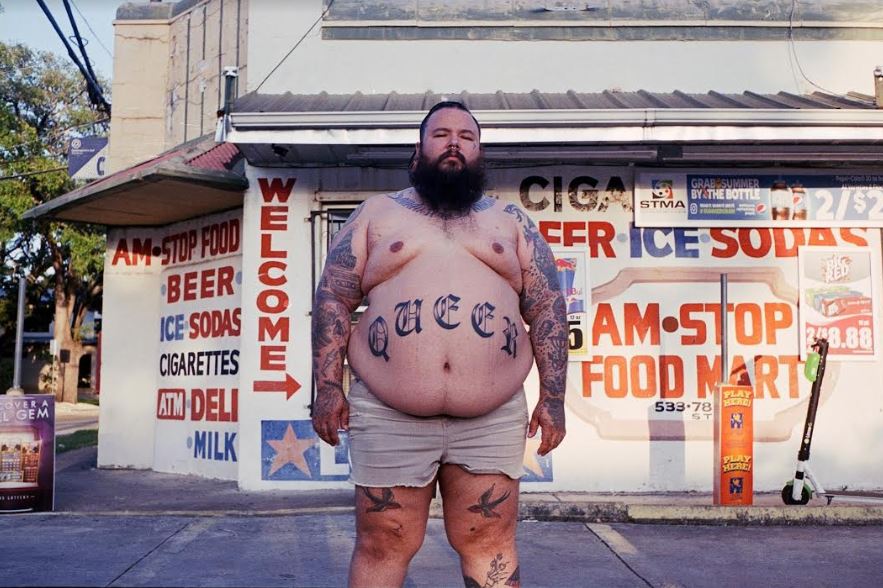


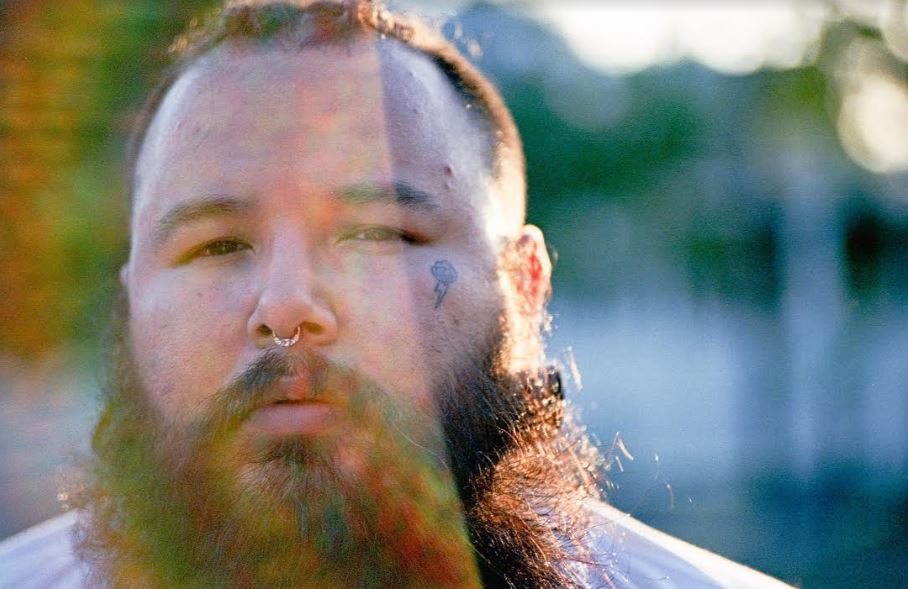
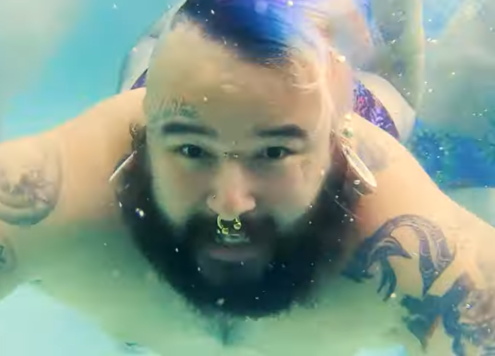
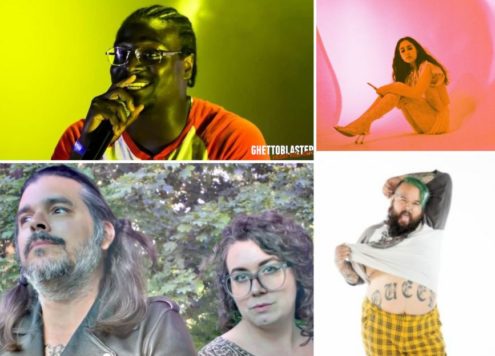
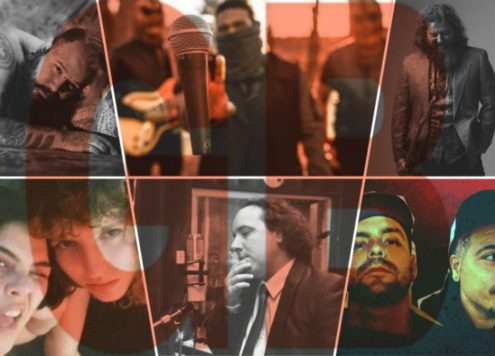
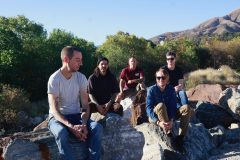
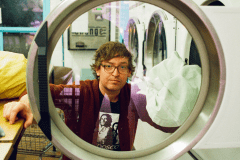
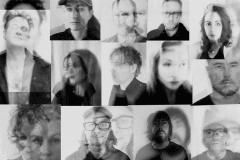
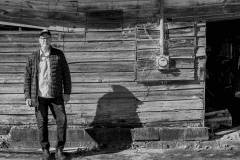

Social Media